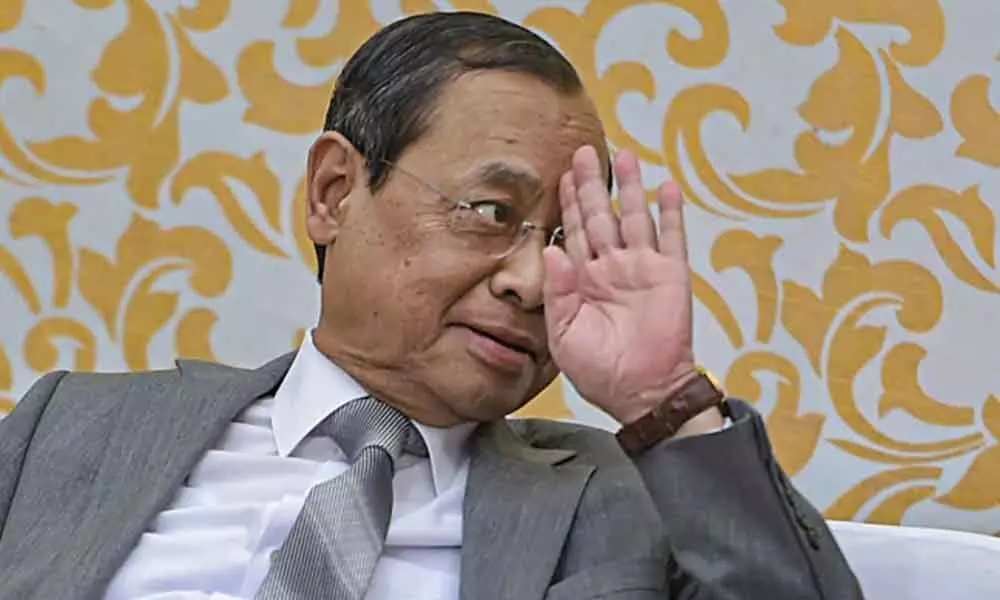A rebel known for Ayodhya, Rafale, Sabarimala verdicts

On his last day at work, Chief Justice of India Ranjan Gogoi sat in court no. 1 for 4 minutes with his successor SA Bobde by his side, issued notices in all ten cases presented before him and penned a note where he spoke of the judiciary’s need to ‘maintain silence while exercising their freedom’.
On his last day at work, Chief Justice of India Ranjan Gogoi sat in court no. 1 for 4 minutes with his successor SA Bobde by his side, issued notices in all ten cases presented before him and penned a note where he spoke of the judiciary's need to 'maintain silence while exercising their freedom'.
After a hectic week where he decided landmark cases such as the Ayodhya title dispute, Rafale defence deal, entry of women into Sabarimala temple and bringing CJI in RTI Act ambit, the Chief Justice retires on November 17.
In the note he released on Friday, 64-year-old Gogoi while mentioning that some bar members 'push the boundaries of freedom', said the bench required its judges to remain silent.
"This is not to say that judges do not speak… but do so only out of functional necessity, and no more," said Gogoi, who took over as the CJI on October 3, 2018.
Justice Gogoi is also known for being part of a presser by the 'gang of four' senior most judges in January last year which questioned the then CJI's way of functioning.
Justice Gogoi's tenure as CJI was not free of controversy as he faced allegations of sexual harassment, of which he was cleared.
The CJI headed a bench which, by a majority 3:2 verdict, referred to a larger 7-judge bench the pleas seeking review of the apex court's historic 2018 judgement allowing women and girls of all ages to enter Kerala's Sabarimala temple.
The majority verdict included in the ambit of the review petitions raising issues of alleged religious discrimination against Muslim and Parsi women as well.
Justice Gogoi's name will also be remembered for heading a bench which gave clean chit to the Modi government twice -- first on the writ petition and then on Thursday on the pleas seeking review of the December 14, 2018 verdict -- in the sensitive Rafale fighter jet deal with the French aviation firm Dassault Aviation.
Besides, Justice Gogoi headed a bench which in a landmark verdict held that the office of the CJI is a public authority under the Right to Information Act, but "judicial independence has to be kept in mind" while disclosing information in "public interest".
Justice Gogoi on Friday expressed his inability to have one-to-one interview with scribes and lauded the press for its "maturity" and "character" in preventing "canards and falsehood" in "trying times" of the judiciary.
Justice Gogoi, the 46th CJI and the first from a north-eastern state, said it was not the requirement of the Supreme Court that judges "reach out to our citizenry through the press".
"Such outreach (to the press) ought to be symbolic of an extraordinary situation demanding an exception to the norm," said Justice Gogoi who would demit office on November 17, a Sunday.
Justice Gogoi and three other senior most apex court judges -- Justices J Chelameswar, Madan B Lokur and Kurian Joseph had held an unprecedented press conference on January 12, 2018 alleging that the administration and allocation of cases in the apex court, then headed by the then CJI Dipak Misra, was "not in order".














